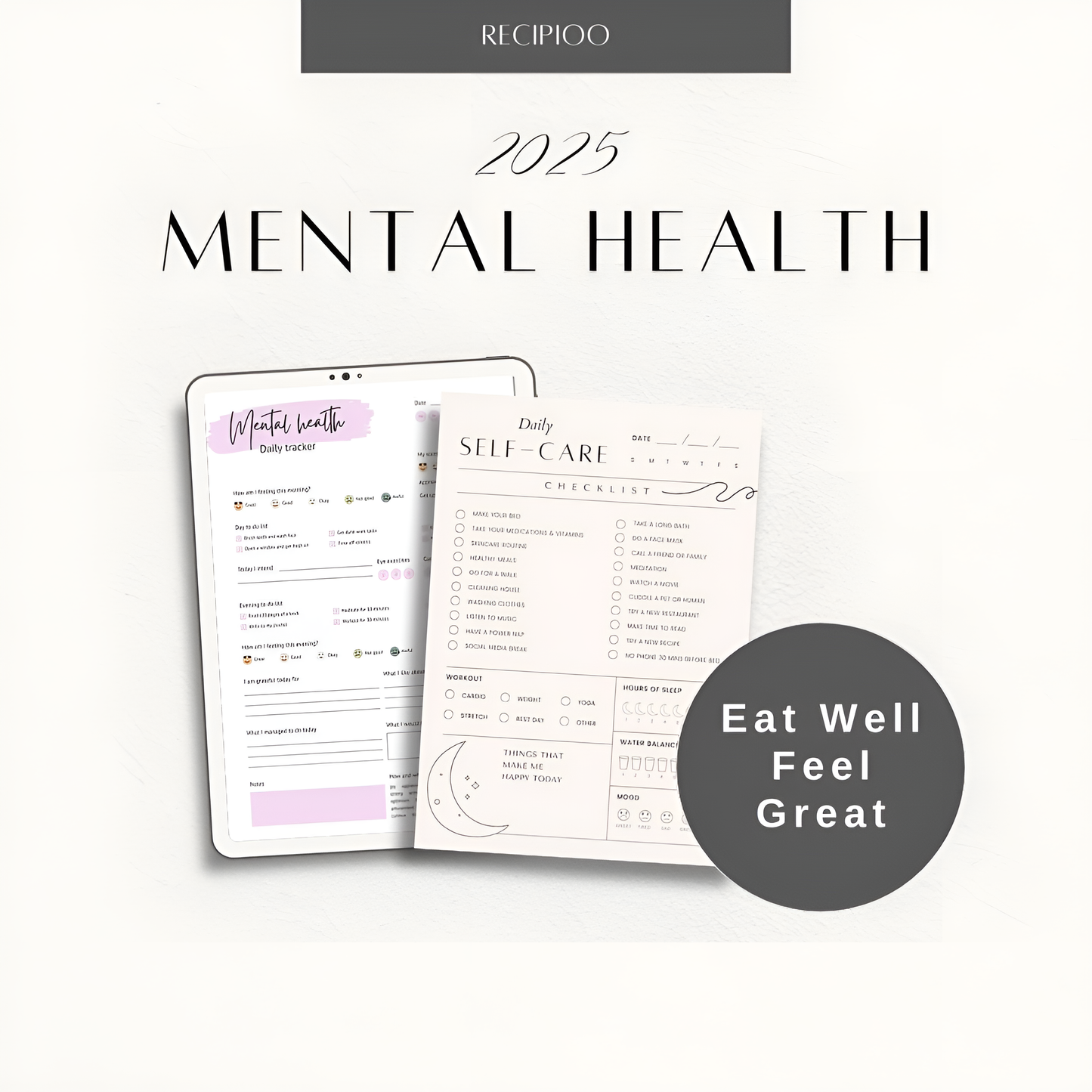
Carrots Nutrition: Facts and Health Benefits
Share

Carrots are more than just a crunchy snack or a colorful addition to your meals. They’re a nutritional powerhouse packed with vitamins, minerals, and antioxidants that can significantly boost your health. Whether you’re curious about their calorie content, health benefits, or how they fit into your diet, this guide covers everything you need to know about carrots' nutrition. Let’s dive in!

Nutritional Profile of Carrots
Carrots are low in calories but rich in essential nutrients, making them a fantastic addition to any diet. Here’s a breakdown of their nutritional profile:
Overview of Key Nutrients
Carrots are a treasure trove of macronutrients, micronutrients, and phytonutrients. They’re particularly known for their high levels of **beta-carotene**, which your body converts into Vitamin A. But that’s just the beginning—carrots also provide a range of vitamins, minerals, and antioxidants that support overall health.
If you're interested in learning about the nutritional value of other vegetables, check out our articles on broccoli nutrition information and zucchini squash nutrition.
Macronutrients
Calories in Carrots
- **Raw Carrots**:
- - Per 100 grams: Approximately **41 calories**.
- - Per medium-sized carrot (61 grams): Roughly **25 calories**.
**Cooked Carrots**:
- - Boiling or steaming: Slightly increases calorie content due to water absorption.
- - Roasting: Can concentrate natural sugars, adding a few more calories.
For more low-calorie meal ideas, explore our 15 healthy breakfast recipes and 14 easy dinner recipes.
Carbohydrates
- Carrots are primarily composed of carbohydrates, with about **9.6 grams per 100 grams**.
- - They contain **natural sugars** like glucose and sucrose, which provide quick energy.
- - The **dietary fiber** content (2.8 grams per 100 grams) aids digestion, promotes gut health, and helps you feel full longer.
If you're looking for high-fiber meal options, try our 15 salad recipes or 15 vegan lunch recipes.
Protein and Fat
- - Carrots are not a significant source of protein or fat.
- - Per 100 grams, they contain about **0.9 grams of protein** and **0.2 grams of fat**, making them a low-fat, low-protein food.
Micronutrients
Vitamins
**Vitamin A (Beta-Carotene)**:
- One medium carrot provides over **200% of your daily Vitamin A needs**.
- Essential for eye health, immune function, and skin health.
- - **Vitamin K**: - Supports bone health and blood clotting.
- - **Vitamin C**: - An antioxidant that boosts immunity, promotes skin health, and aids in collagen production.
- - **B Vitamins**: - Includes **folate**, which is crucial for cell growth and metabolism.
Minerals
**Potassium**:
- - Helps regulate blood pressure and supports heart health.
**Calcium and Magnesium**:
- - Essential for strong bones and teeth.
**Phosphorus**:
- - Plays a role in energy production and bone health.
Learn more about mineral-rich foods in our guide to walnut nutrition value.
Phytonutrients
Carrots are rich in **antioxidants** and phytonutrients, which protect your cells from damage and reduce inflammation. Key phytonutrients include:
- **Lutein and Zeaxanthin**: Support eye health and reduce the risk of age-related macular degeneration.
- **Lycopene**: Found in red and purple carrots, it may lower the risk of certain cancers.
Health Benefits of Carrots
Carrots are more than just a tasty vegetable—they’re a health-boosting superfood. Here’s how they benefit your body:
Eye Health
Carrots are famous for their **beta-carotene** content, which your body converts into Vitamin A. This nutrient is vital for maintaining good vision, especially in low-light conditions. It also helps prevent age-related macular degeneration, a common cause of vision loss. Additionally, carrots contain **lutein and zeaxanthin**, antioxidants that protect your eyes from harmful blue light and reduce the risk of cataracts.
For more eye-healthy foods, check out our article on strawberry nutritional information.
Immune System Support
The **Vitamin C** and antioxidants in carrots strengthen your immune system, helping your body fight off infections and illnesses. Vitamin C stimulates the production of white blood cells, which are essential for defending your body against pathogens. The antioxidants, on the other hand, reduce inflammation and protect your cells from damage caused by free radicals.
Boost your immunity further with our 15 fruit smoothie recipes.
Heart Health
The **potassium** in carrots helps regulate blood pressure by balancing the effects of sodium in your diet. This mineral relaxes blood vessels, improving blood flow and reducing the strain on your cardiovascular system. Additionally, the **fiber** in carrots lowers LDL (bad) cholesterol levels, further supporting heart health. Together, these nutrients reduce your risk of heart disease and stroke.
For more heart-healthy tips, explore our article on nutritional information beets.
Digestive Health
The **dietary fiber** in carrots supports gut health by promoting regular bowel movements and feeding beneficial gut bacteria. Fiber adds bulk to your stool, making it easier to pass and preventing constipation. It also acts as a prebiotic, encouraging the growth of healthy bacteria in your gut, which improves digestion and overall gut health.
For more fiber-rich recipes, try our 15 easy soup recipes.
Skin Health
Carrots are packed with **antioxidants** and **Vitamin C**, which protect your skin from damage, reduce signs of aging, and promote a healthy glow. Beta-carotene, in particular, acts as a natural sunblock, protecting your skin from UV damage. Vitamin C, on the other hand, boosts collagen production, keeping your skin firm and reducing wrinkles.
Cancer Prevention
The antioxidants in carrots, such as **beta-carotene** and **lycopene**, help reduce oxidative stress and lower the risk of certain cancers. Oxidative stress occurs when free radicals damage your cells, leading to chronic inflammation and cancer development. By neutralizing free radicals, the antioxidants in carrots protect your cells and reduce your risk of cancers like lung, breast, and prostate cancer.
Weight Management
With their **low calorie** and **high fiber** content, carrots are a great snack for weight loss. They keep you full without adding extra calories, making them an excellent choice for anyone looking to manage their weight. The fiber in carrots slows down digestion, keeping you satisfied for longer and reducing the likelihood of overeating.
Calories in Carrots: Raw vs. Cooked
Understanding how cooking affects carrots’ calorie content can help you make better dietary choices. Here’s a detailed breakdown:
Caloric Content of Raw Carrots
**Raw Carrots**:
- Per 100 grams: Approximately **41 calories**.
- Per medium-sized carrot (61 grams): Roughly **25 calories**.
- Raw carrots are low in calories, making them an excellent snack for weight management.
How Cooking Methods Affect Calorie Count
Cooking carrots can slightly alter their calorie content depending on the method used:
**Boiling or Steaming**:
- - These methods add minimal calories but soften the carrots, making them easier to digest.
- - Boiling may cause a slight loss of water-soluble nutrients like Vitamin C, but the calorie count remains relatively unchanged.
**Roasting**:
- Roasting carrots can concentrate their natural sugars, slightly increasing their calorie content.
- - For example, roasted carrots may have around **55 calories per 100 grams** due to caramelization.
Comparison of Calories in Different Carrot Forms
- **Baby Carrots**:
- Similar in calories to regular carrots, with about **35 calories per 100 grams**.
- They’re a convenient, pre-peeled option for snacking.
- **Carrot Juice**:
- Higher in calories (around **40 calories per 100 ml**) due to the concentration of natural sugars.
- While nutritious, juicing removes the fiber, so it’s less filling than whole carrots.
- **Carrot-Based Dishes**:
- Dishes like carrot cake or glazed carrots will have higher calorie counts due to added ingredients like sugar, butter, or oil.
- For example, a slice of carrot cake can contain **200-300 calories** or more, depending on the recipe.
Carrots and Special Diets
Carrots are versatile and fit into many dietary plans. Here’s how they align with specific diets:
Carrots in a Low-Carb or Keto Diet
- **Are They Suitable?**
- Carrots are higher in carbs than some vegetables (about **9.6 grams of carbs per 100 grams**), so they should be eaten in moderation on a low-carb or keto diet.
- A small serving of carrots can still fit into your daily carb allowance, but avoid large quantities.
Carrots in a Vegan or Plant-Based Diet
- **Nutritional Benefits**:
- Carrots are a staple in plant-based diets, providing essential nutrients like **Vitamin A**, **fiber**, and **antioxidants**.
- - They’re a great way to add color, flavor, and nutrition to vegan meals.
Carrots in a Gluten-Free Diet
- **Naturally Gluten-Free**:
- - Carrots are naturally free of gluten, making them a safe and nutritious option for those with celiac disease or gluten sensitivity.
- - They can be used in gluten-free recipes like soups, salads, and roasted vegetable dishes.
Carrots for Diabetics
- **Glycemic Index and Impact on Blood Sugar**:
- Carrots have a **low glycemic index (GI)**, meaning they release sugar slowly into the bloodstream.
- However, portion control is key. Stick to small servings (e.g., one medium carrot) to avoid blood sugar spikes.
- Pairing carrots with a source of protein or healthy fat (like hummus or nuts) can further stabilize blood sugar levels.
Fun Facts About Carrots
Carrots have a rich history and some surprising traits that make them even more fascinating. Here are some fun facts to deepen your appreciation for this humble vegetable:
Historical Background: Origin and Cultivation of Carrots
- Carrots were first cultivated over **1,000 years ago in Afghanistan**.
- The original carrots were **purple or yellow**, not orange. These varieties were prized for their medicinal properties and used in traditional medicine.
- Orange carrots, which are now the most common, were developed in the **Netherlands during the 16th century** as a tribute to the Dutch royal family, the House of Orange.
Different Colors of Carrots and Their Unique Nutrients
- **Orange Carrots**: High in **beta-carotene**, which supports eye health and immunity.
- **Purple Carrots**: Contain **anthocyanins**, powerful antioxidants that may reduce inflammation and improve heart health.
- **Yellow Carrots**: Rich in **lutein**, which promotes eye health.
- **White Carrots**: Low in pigments but still a good source of fiber and potassium.
Why Carrots Are Associated with Good Eyesight
- The idea that carrots improve eyesight originated from **World War II propaganda**. The British Royal Air Force claimed their pilots ate carrots to see better at night, but this was actually a cover story to hide their use of radar technology.
- While carrots won’t give you superhuman vision, their **beta-carotene** content does support overall eye health and may help prevent conditions like night blindness and macular degeneration.
How to Incorporate Carrots into Your Diet
Carrots are incredibly versatile and can be enjoyed in countless ways. Here are some delicious ideas to help you incorporate more carrots into your meals:
Raw Carrots
- **Snacks**: Enjoy carrot sticks with hummus, guacamole, or your favorite dip.
- - **Salads**: Add shredded or thinly sliced carrots to salads for a crunchy, sweet touch.
- - **Dips**: Blend raw carrots into dips like carrot ginger dressing for a fresh, zesty flavor.
For more snack ideas, check out our MY RECIPIOO DAILY PLANNER-3 IN 1.
Cooked Carrots
- **Soups and Stews**: Add chopped carrots to soups, stews, and curries for extra nutrition and flavor.
- **Side Dishes**: Roast carrots with olive oil, honey, and herbs for a caramelized, savory-sweet side dish.
- **Mashed Carrots**: Boil and mash carrots with a touch of butter or coconut milk for a creamy, nutritious alternative to mashed potatoes.
Juicing and Smoothies
**Benefits**: Carrot juice is rich in vitamins and antioxidants, making it a refreshing and healthy drink.
Recipes**:
- - **Carrot-Apple-Ginger Juice**: Blend carrots, apples, and ginger for a zesty, immune-boosting drink.
- - **Carrot Smoothie**: Combine carrots, bananas, almond milk, and a dash of cinnamon for a creamy, nutrient-packed smoothie.
Creative Recipes
- **Carrot Cake**: A classic dessert that’s moist, flavorful, and packed with grated carrots.
- **Carrot Muffins**: Perfect for breakfast or snacks, these muffins are a great way to sneak in extra veggies.
- **Savory Dishes**: Try carrot fritters, carrot fries, or a carrot and lentil curry for a hearty, satisfying meal.
Potential Downsides of Eating Too Many Carrots
While carrots are incredibly healthy, overeating them can have some side effects. Here’s what you need to know:
Carotenemia
- **What It Is**: Carotenemia is a condition caused by excessive consumption of beta-carotene, the pigment that gives carrots their orange color.
- **Symptoms**: Your skin may turn slightly orange, especially on the palms, soles, and face. - **Is It Harmful?**: No, carotenemia is harmless and reversible. Simply reduce your carrot intake, and your skin will return to its normal color.
Digestive Issues
- **Excessive Fiber**: Carrots are high in dietary fiber, which is great for digestion in moderate amounts. However, eating too many carrots can lead to bloating, gas, or discomfort.
- **Solution**: Stick to recommended portions (1-2 medium carrots per day) and drink plenty of water to help your digestive system process the fiber.
Sugar Content
- **Natural Sugars**: Carrots contain natural sugars, which can add up if you eat them in large quantities.
- **For Diabetics or Low-Carb Dieters**: While carrots have a low glycemic index, it’s still important to monitor your intake to avoid blood sugar spikes. Pair carrots with protein or healthy fats to slow down sugar absorption.
(FAQs) About Carrots Nutrition
Are Carrots Good for Weight Loss?
Yes! Carrots are low in calories and high in fiber, making them a great snack for weight management. They keep you full without adding extra calories, helping you stick to your weight loss goals.
Can Carrots Improve Eyesight?
While carrots won’t give you superhuman vision, their **beta-carotene** content supports overall eye health. Beta-carotene is converted into Vitamin A, which is essential for good vision, especially in low-light conditions.
How Many Carrots Should I Eat Per Day?
For most people, **1-2 medium carrots per day** is a healthy amount. This provides plenty of nutrients without overloading on fiber or beta-carotene.
Are Baby Carrots as Nutritious as Regular Carrots?
Yes, baby carrots are just as nutritious as regular carrots. They’re simply smaller, peeled versions of full-sized carrots. However, they may have slightly less fiber due to their smaller size.
What’s the Best Way to Store Carrots to Retain Their Nutrients?
-
**Refrigerator**: Store carrots in the crisper drawer of your fridge, preferably in a perforated plastic bag to maintain humidity.
- **Cool, Dark Place**: If you don’t have fridge space, store them in a cool, dark place like a root cellar.
- **Avoid Moisture**: Keep carrots dry to prevent mold and spoilage.
At Recipioo, we are committed to providing you with reliable, well-researched, and trustworthy content. Our team follows rigorous sourcing guidelines, drawing from reputable studies, expert insights, and credible sources to ensure the accuracy and integrity of our information. We believe in empowering you with knowledge you can trust, whether it’s about nutrition, recipes, or healthy living.











